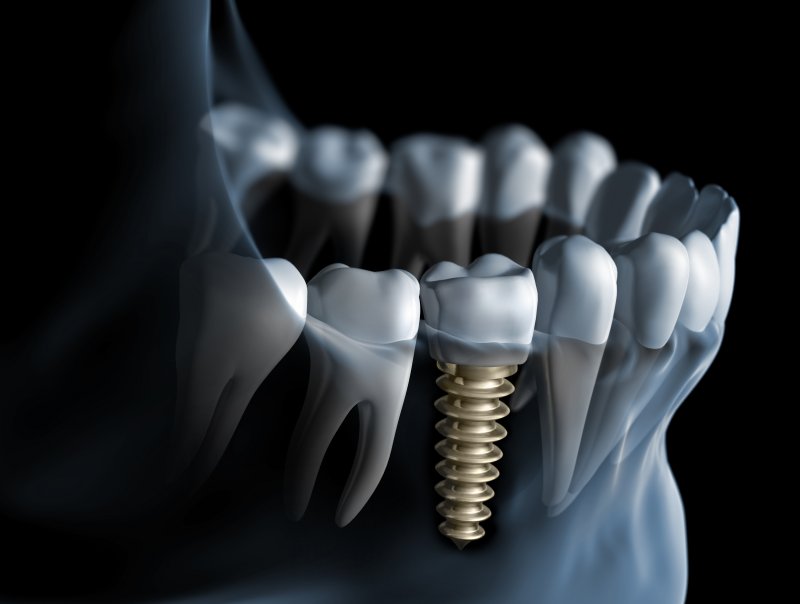7 Dental Implant Terms You Should Know
July 7, 2022

If you’re missing teeth, you know just how difficult it can be to complete daily tasks, like eating, speaking clearly, and smiling with confidence. Fortunately, there are a variety of tooth replacement options out there that can restore the appearance and function of your smile, like dental implants. However, you should be well informed before committing to a restoration of any kind. Here are some common implant-related terms that you should be aware of.
Abutment
This is the connecter that is attached to the top of the dental implant. It serves by acting as the attachment for the replacement tooth. This also helps to guarantee that your new crown stays anchored in place. On the other hand, an “abutment tooth” is a crowned tooth that supports and stabilizes a dental bridge.
Ceramic
This is one of the common materials that is often used to create the replacement teeth that are placed on the end of dental implants. It’s made from a type of clay and then hardened by heat. It is ideal because of its natural-looking, enamel-like appearance.
Crown
A crown, also known as a cap, is placed on a damaged tooth, an adjacent tooth of a dental bridge, or an implant that’s being used to replace a single tooth. In the case of dental implants, they are attached to the abutment to become perfectly grounded.
Dentures
This traditional tooth replacement option is very common. However, you may not know that there are several different types of dentures out there. Instead of being held in by the natural suction of your mouth, they are supported by dental implants. This allows for additional longevity and stability compared to traditional dentures.
Osseointegration
Osseointegration comes from Greek and Latin words that mean “bone” and “to make whole.” Ultimately, osseointegration is a biological process that allows a dental implant to fuse with your existing bone, improving the strength between the living bone and the metal implant.
Titanium
Most modern dental implants are made from titanium. This metal has a variety of advantages. Very few people have allergic reactions to titanium, so it is rare for a patient to have a negative experience. Titanium is lightweight, yet very strong, therefore reducing the weight on your bone. Titanium can also ossify with bone, producing a stronger result that can last for many years.
Zirconia
A very small percentage of people do experience allergies to titanium, so zirconia is another option for the implant material. Zirconia implants have no prosthetic connections, so the risk of bacteria growth is lower. Patients may experience better gum health when they have this type of implant.
By knowing more about dental implants, you will be better able to determine whether or not they are the ideal tooth replacement option for you. You’ll have your smile back in no time!
About the Author
Dr. Gina Ostrand is an experienced dentist who has been working in the field for three decades! She earned her dental doctorate from the Marquette University School of Dentistry and is committed to continuing education to keep her knowledge and skills sharp. Currently, she’s a proud member of the Wisconsin Dental Association, Seattle Study Club, and the American Academy of Facial Aesthetics. To learn more about dental implants, or to schedule a consultation at her office in Pewaukee, visit her website or call (262) 695-8600.
No Comments
No comments yet.
RSS feed for comments on this post.
Sorry, the comment form is closed at this time.

